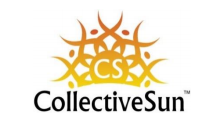FINANCING YOUR SOLAR SYSTEM
BUY OUTRIGHT
Solar Endowment
One model is investing in a solar system as a creative way to approach a congregational endowment. With the net savings in electricity costs per year, solar systems may return on an initial investment at a rate higher than that of an already-established endowment fund. If a congregation already has a fund, it can withdraw the principal to pay for the installation of the solar system and use the net savings in electricity costs to pay back the fund over 20-25 years, depending on the size of the system. If the net savings on energy bills yield a higher rate of return than the interest earned on the permanent endowment, the solar system could pay back the principle investment and interest lost as a result of liquidating the fund.
Split-Interest Gift
A wealthy member of a congregation may be interested in pursuing a Charitable Lead Trust to help a congregation install solar. Under this model, the donor gives an asset (i.e. a given amount of appreciated stock valued at the amount the congregation requires to complete the solar deal after state rebate) and the congregation sells the stock to purchase the solar system. The congregation tallies its electricity savings in a given amount of years. When it reaches the initial cash value of the ‘gifted’ stock, it returns the ‘gift’ to the donor (i.e. the initial cash value of the stock.) This option benefits both parties: the donor avoids a capital gains tax on the sale of the appreciated securities and receives a tax deduction for the value of the interest/dividends he or she could have made on the investment; the congregation now has a solar array, has paid off its ‘gift,’ and owns the system outright.
Sponsor a Panel
This is a form of financing that is being used more often, in which members of the congregation buy a full or partial solar panel. Plaques or memorials to family members involved in the congregation may encourage participation in such fundraising campaigns.
Refinance a Mortgage
This model involves a congregation refinances the mortgage on their building and uses the freed-up capital to invest in a solar system. The longer payoff on the mortgage increases cash-flow for the congregation to use for other programs, and the energy savings may, in fact, pay for the repayment on the refinanced mortgage.
Solar Lease Financing
Some solar companies offer the option (based on a successful credit check and a series of other prerequisites like system size, etc.) of leasing the solar system back to a congregation. Under this model, the solar installation company pays for the upfront capital required to install and maintain the system, and the congregation pays a fixed monthly price to the solar installer over the course of the lease agreement. This protects the congregation from the inevitable annual increase in energy costs. It is important that the system be sized correctly so that the congregation is not paying a large power bill to its utility in addition to the lease payment to the solar installer. An increasing number of congregations in the United States have installed solar through a lease program.
Power Purchase Agreements (PPAs)
A Power Purchase Agreement (PPA) is a contract between a solar power company (often involving a group of investors) and a congregation, in which the solar power company installs and owns the system, and the congregation agrees to buy the electricity generated on a monthly basis over the long term. Essentially, a house of worship is able to pay for solar as a service, rather than paying the high upfront costs of the solar panels themselves. Under a power purchase agreement, the solar power company is responsible for providing the upfront capital to fund the installation of the solar array. It serves as the owner-operator of the system, covering insurance and fees for operations and maintenance, and offers a money-back guarantee that the system will produce the contracted amount of electricity over the long term. The solar power company receives the federal investment tax credit (ITC) and accelerated depreciation as a for-profit entity, and is thus able to pass on significant savings to the congregation over the long term vis-à-vis an outright system purchase or low-interest financing, where the ITC and depreciation cannot be utilized by a non-profit entity.
Community Financing:
This is a financing alternative that provides congregations with solar power, but does not require that the congregation itself buy or lease the solar facility. Instead, the solar equipment is paid for by aggregating investment from congregants. Under this approach, interested congregants can invest (typically amounts ranging from $1,000 to $25,000.) into a company created for the sole purpose of owning the solar asset (“NewCo”). The investors can typically expect a return of between 3 to 8 percent, depending upon their tax status. The congregation buys the electricity generated by the solar equipment that NewCo has purchased, and these funds serve to repay the investors. Ultimately, once the investors have been repaid, with interest, ownership of the solar facility would pass to the congregation. In some circumstances, outside investors typically individuals or financial institutions who are committed to investing in opportunities that are both financially and socially rewarding, will supplement the investment made by the congregants.
CollectiveSun is Proud to Be the Only Company in America That Exclusively Helps Nonprofits Get Solar
For more information download the flyer: CollectiveSun – Company Summary
Solar Financing for Congregations with CollectiveSun – YouTube
Churches and nonprofits can partner with CollectiveSun to easily go solar. Learn about crowd-lending and Solar as a Service. Webinar interview with Interfaith Power & Light. Todd Bluechel and Lee Barken of CollectiveSun highlight the advantages for nonprofits, churches, and synagogues of tapping into solar tax credits and mobilizing their communities to invest in solar for their facilities. Save money on electric bills!

